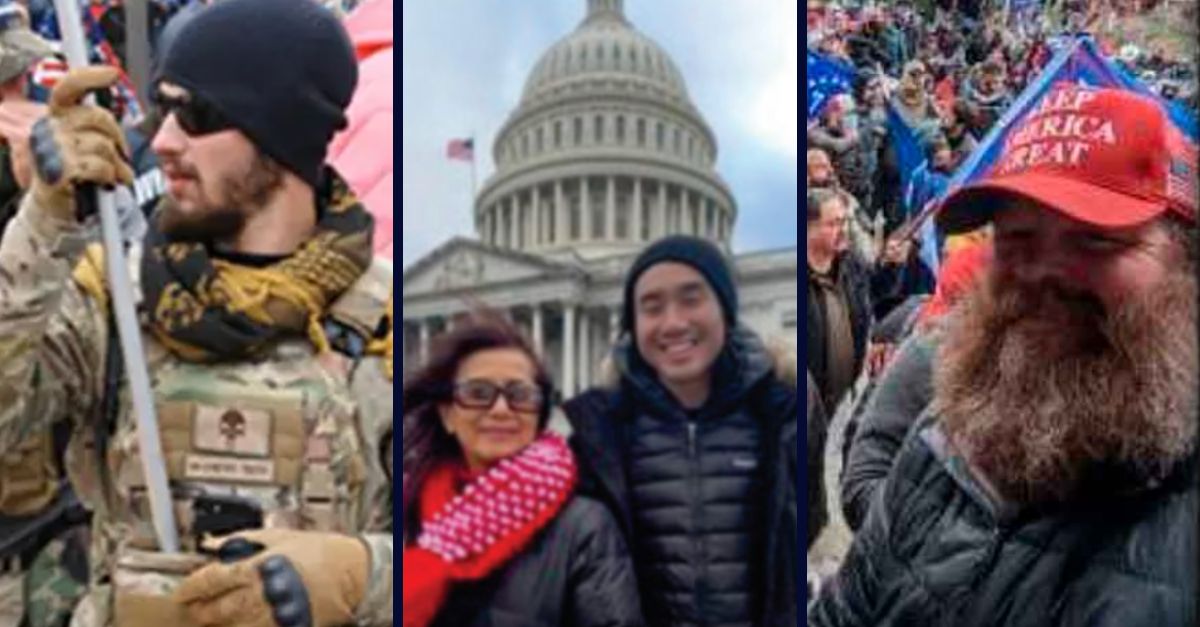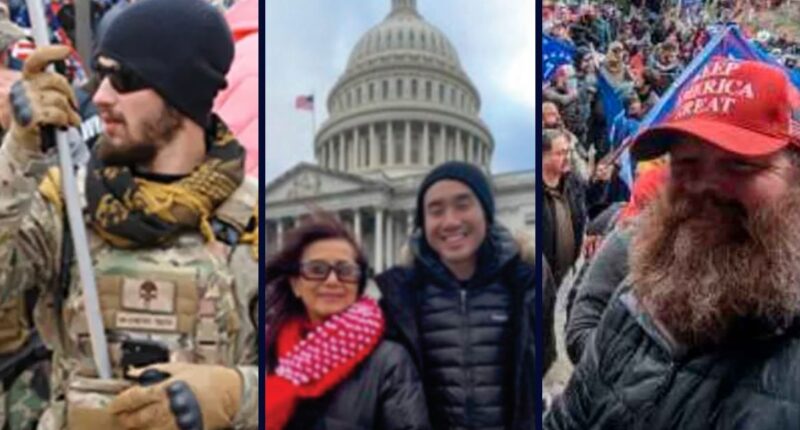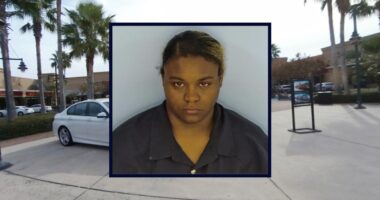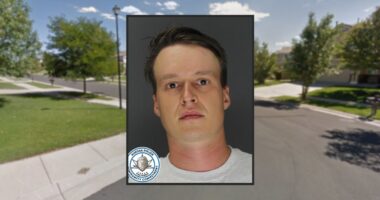
Left: Jonathan Pollock (Department of Justice). Center: Antony Vo (DOJ). Right: Benjamin Martin (DOJ).
Some of the defendants involved in the events of January 6th and who were charged with offenses unrelated to the Capitol attack, such as possessing illegal weapons or evading justice, are still being held accountable for those separate crimes, according to court records.
For instance, Jonathan Daniel Pollock, an alleged participant in the riot, skipped out and did not show up for his trial early last year. While the charges against him in connection to the 2021 insurrection were completely dropped, he is still facing charges for fleeing from the authorities, as confirmed by the Department of Justice.
According to a motion filed by DOJ prosecutors on Tuesday, all charges stemming from Pollock’s indictment in June 2021 for his actions on January 6, 2021, were dismissed following an executive order issued by President Donald Trump. Nevertheless, Pollock has not been cleared of the charges related to his evasion and failure to attend his federal court hearings.
“The government cites to the Executive Order dated January 20, 2025, Granting Pardons and Commutation of Sentences for Certain Offenses Relating to the Events at Or Near the United States Capitol on January 6, 2021, as the reason for this dismissal,” prosecutors wrote in the motion to dismiss the counts related to Jan. 6.
District Judge Carl J. Nichols — a Trump appointee — signed off on the dismissal Tuesday.
Antony Vo, a former Indiana resident convicted of storming the Capitol with his mother, still has a pending case showing for a “failure to surrender for sentence” charge that he got hit with earlier this month after skipping out on reporting to prison.
The 32-year-old was captured on Jan. 6 in Whistler, British Columbia, by Canadian border agents, according to the Federal Bureau of Investigation and U.S. Attorney’s Office. He told news outlets in Canada and the United States over the past several weeks that he was “attempting to escape prosecution by undergoing the asylum process” across the border.
“He intended to remain in Canada anticipating a change in policy in the incoming administration,” his complaint says. “On January 6, 2025, the Canadian Border Services Agency (CBSA) took Vo into custody for an alleged illegal entry into the country. His removal proceedings remain ongoing.”
Benjamin Martin, a California rioter who confronted cops at a set of doors to the U.S. Capitol building and got sprayed by mace, was ordered to report to prison in Fresno on Wednesday after being convicted and sentenced for possession of an illegal weapons cache that included an AR‑15‑style rifle and 500 rounds of ammunition. Martin and others close to him have confirmed on X, formerly Twitter, that Trump’s pardon didn’t cover his conviction and sentence for the guns.
“Please help my dad!” wrote Martin’s son, Brody Martin, in an X post Tuesday. “Judge Jennifer Thurston is expecting my dad to turn himself in tomorrow on bogus additional charges stemming the FBI raiding his home due to being at J6.”
Martin, 46, was sentenced in November 2024 to three years and two months in prison for illegally possessing several firearms and ammunition. He was convicted following a one-day trial.
Another rioter who appears to be in the same boat is Jeremy Brown, who was linked to an explosives-laden RV that was allegedly brought to the Washington area around Jan. 6, according to DOJ prosecutors, and is currently locked up for possession of unregistered short-barrel firearms, possession of unregistered explosive grenades, improper storage of explosive grenades, and retention of classified information.
People close to Brown and the Jan. 6 defendant himself reported on X that he was told he’d be getting released Tuesday, but ultimately wasn’t and he’s now been informed that the pardon didn’t cover his charges.
Another statement from Master Sergeant Jeremy Brown after he was initially told he was about to be released and then told it was a “mistake”. pic.twitter.com/iEfeAQTJLx
— CannCon (@CannConActual) January 21, 2025
A Jan. 6 rioter from New Hampshire who was pardoned has started calling for “investigations and compensation” for defendants for the prison time they served and for “defamation of character and slander.” Dyke Huish, a lawyer for pardoned Jan. 6 participant Russell Taylor, told Law&Crime Tuesday that likely won’t happen.
“There’s a big difference between a dismissal, a pardon, and an expungement,” Huish said. “A pardon just basically says, ‘Look, you did it, but we’re going to forgive you and we’re going to end the process and end your responsibilities and say you’ve been forgiven,’ so to speak,” Huish explains. “But it doesn’t undo the record. It doesn’t take away the crime.”









